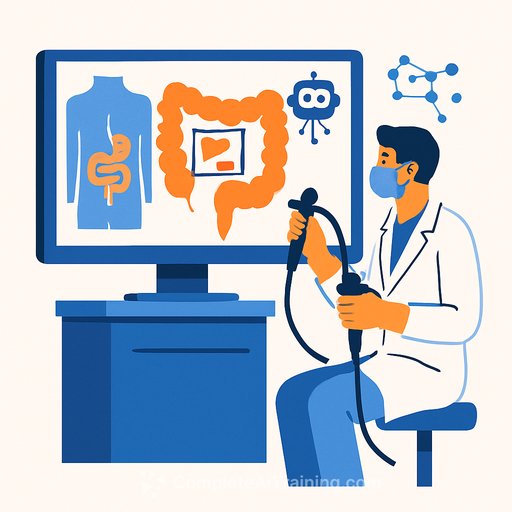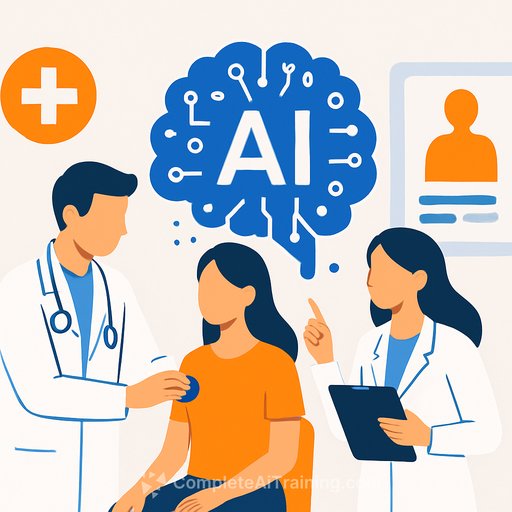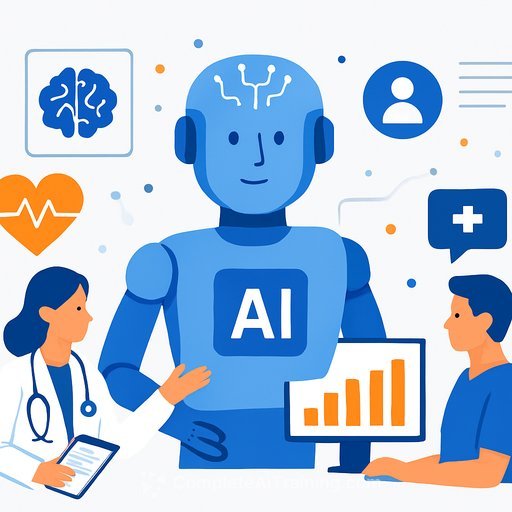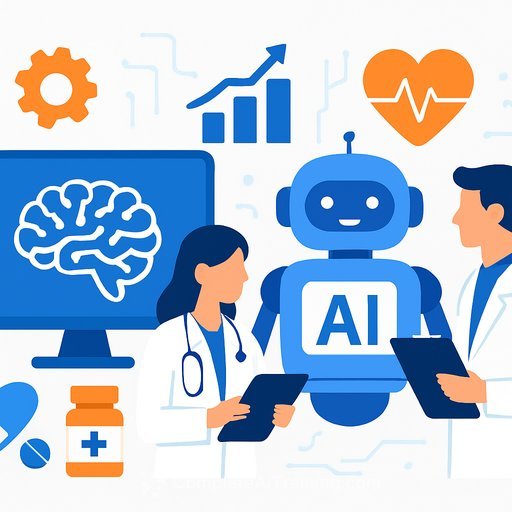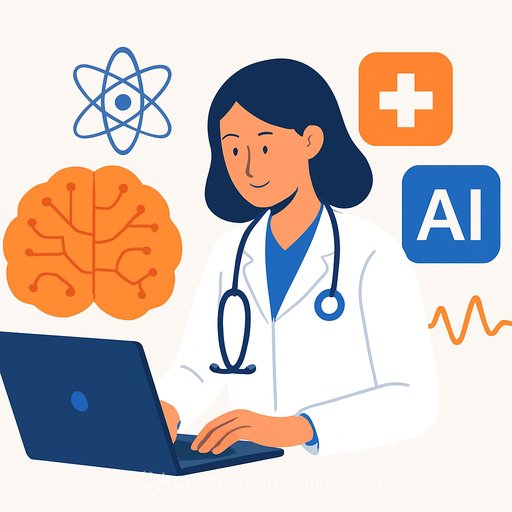Computer-aided Quality Assurance for Colonoscopy
Adenoma Detection Rate
Recent research highlights a concerning trend: the use of artificial intelligence (AI) during colonoscopies may reduce endoscopists' ability to detect precancerous growths (adenomas) when AI support is not available. This finding was published in The Lancet Gastroenterology & Hepatology.
Colonoscopy plays a crucial role in preventing bowel cancer by identifying and removing adenomas. While multiple trials have shown that AI assistance improves adenoma detection rates, there is limited data on how long-term AI use impacts the skills of healthcare professionals who perform these procedures. Some experts speculated AI could either help train clinicians or potentially cause skill decline.
One of the study's main authors from the Academy of Silesia in Poland emphasized the urgency of investigating how AI affects healthcare professionals' capabilities across medical fields. They stressed the importance of identifying factors that cause difficulties when AI and human skills don't align and developing strategies to address these challenges.
AI in Endoscopy: Helper, Trainer, or Influencer?
AI is becoming more common in endoscopy, often detecting abnormalities faster than humans. However, its use raises new concerns. A specialist from the University Hospital Würzburg noted that AI not only influences diagnostic reporting but also impacts the clinicians performing the procedures.
The study involved four colonoscopy centers in Poland from September 2021 to March 2022. After introducing regular AI use at the end of 2021, colonoscopies were randomly performed with or without AI assistance. In total, 1,443 colonoscopies were completed without AI (795 before and 648 after AI implementation) by 19 experienced endoscopists, each having conducted over 2,000 procedures.
Results showed a significant decline in adenoma detection rates during non-AI colonoscopies after AI exposure—from 28.4% before AI use to 22.4% after. This reflects a 20% relative and 6% absolute reduction. Meanwhile, AI-assisted procedures had a detection rate of 25.3%.
A professor from the University of Oslo pointed out that previous trials showing AI-assisted colonoscopy's superiority over non-assisted procedures might not fully represent standard practice. The endoscopists in those trials could have experienced negative effects from continuous AI exposure, which this study begins to reveal.
Limitations and the Path Forward
The study's observational design means other factors might have influenced the decline in detection rates. Additionally, since only highly experienced endoscopists were involved, it’s unclear if less experienced professionals would be more affected by AI use over time. Further research is necessary to explore these aspects.
In an accompanying commentary, a University College London expert stressed that while AI holds promise for improving clinical outcomes, caution is needed. The study offers the first real-world evidence of skill decline linked to AI usage, which could impact patient care. Protecting essential clinical skills remains critical alongside adopting new technologies.
Key Takeaways for Healthcare Professionals
- AI assistance can improve adenoma detection but may reduce clinicians’ unaided detection skills over time.
- Regular use of AI tools requires monitoring of their impact on healthcare professionals’ core competencies.
- Further research is needed, especially involving less experienced endoscopists, to understand long-term effects fully.
- Balancing AI integration with ongoing skill development is essential to maintain high-quality patient care.
For healthcare professionals interested in advancing their understanding of AI applications and maintaining clinical skills, exploring specialized training courses can be valuable. Resources such as Complete AI Training's job-specific courses offer practical insights into effective AI use in medical settings.
Your membership also unlocks:

